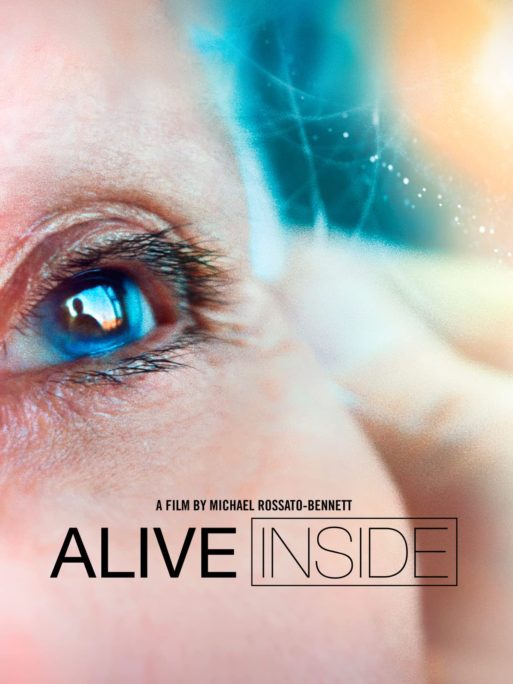 Rossato-Bennett’s Alive Inside (2014) is a must-see documentary for anyone who is familiar with the struggles of dementia. At the start of the film, we are introduced to Dan Cohen, who is both a social worker in nursing homes and the founder of Music and Memory—a nonprofit organization dedicated to providing nursing home inhabitants with personal music devices to help improve their emotional health and all-around well-being. As we follow Cohen through the narrative of the film, it is hard not to be captivated by the life-changing effects that music has on the people that Music and Memory is able to help.
Rossato-Bennett’s Alive Inside (2014) is a must-see documentary for anyone who is familiar with the struggles of dementia. At the start of the film, we are introduced to Dan Cohen, who is both a social worker in nursing homes and the founder of Music and Memory—a nonprofit organization dedicated to providing nursing home inhabitants with personal music devices to help improve their emotional health and all-around well-being. As we follow Cohen through the narrative of the film, it is hard not to be captivated by the life-changing effects that music has on the people that Music and Memory is able to help.
It is hard not to be captivated by the life-changing effects that music has on the people that Music and Memory is able to help.
One of the first people that we meet in the film is Henry, who suffers with limited mobility in addition to his dementia. As we are introduced to him, we learn that he is a long-time resident of his nursing home who has an isolated attitude and shies away from participating in activities with other residents and staff members. Because of his reclusive nature, Henry was chosen to participate in the music experiment that Cohen is working on in his project.
As part of the project, Cohen gives Henry an iPod connected to a headset and plays “The Saints Go Marching In.” The change in Henry is almost immediate, as he begins to sing and sway along with the music. The dramatic change in Henry’s attitude is a breathtaking sight to behold, and it is just one example of how something so small as an iPod with music can completely alter the outlook of someone’s life. Through Henry’s experience, viewers are able to see how truly isolated residents of nursing homes are. The gift of music that Cohen and his colleagues are able to provide for lucky residents is a gift of life that can connect them back to their memories of the past and to their present community in the nursing home.
Throughout the duration of the film, viewers are also shown the struggle that Cohen and his colleagues must go through in approving funding to provide music treatment therapy for residents in nursing homes. While Cohen accounts the amazing progress that he has had in improving the lives of those he has been able to give personal music devices to, he is continually met with resistance from nursing homes that prefer to treat patients with medication rather than helping people who are suffering from isolation.
As we enter into the global community, it is becoming more difficult to think in terms of what our own local communities have to offer and what we can do to help on an individual level.
While the experiences we see in the film from Henry and others like him show firsthand how such a small tool can improve a life, the struggles that we see Cohen go through as he fights to get support from grants highlights the current disconnect in nursing homes between caring for a person’s body versus caring for a person’s soul. The film itself focuses on how this problem is rooted in the financial benefits that come into play when taking care of the elderly, and the current cultural shift in America that is diminishing the place that our elders have in our society.
And perhaps this negative cultural attitude really is to blame? As we enter into the global community, it is becoming more difficult to think in terms of what our own local communities have to offer and what we can do to help on an individual level. Regardless to what the answer to this question may be, the results that we can see in Alive Inside are clear. Reaching out and asking that age old question of “What is your favorite song?” can do wonders to connect people with each other and change many people’s lives.
Related SevenPonds Articles:
- How Can Learning the Harmonica Help the Elderly? An Interview with Bill Fried
- What is the Nature of Sound Healing? An Interview with Silvia Nakkach, Part 1
- What is Expressive Arts Therapy? An Interview with Adriana Marchione

 Alive Inside by Michael Rossato-Bennett
Alive Inside by Michael Rossato-Bennett



 The Other Death in the Family
The Other Death in the Family















